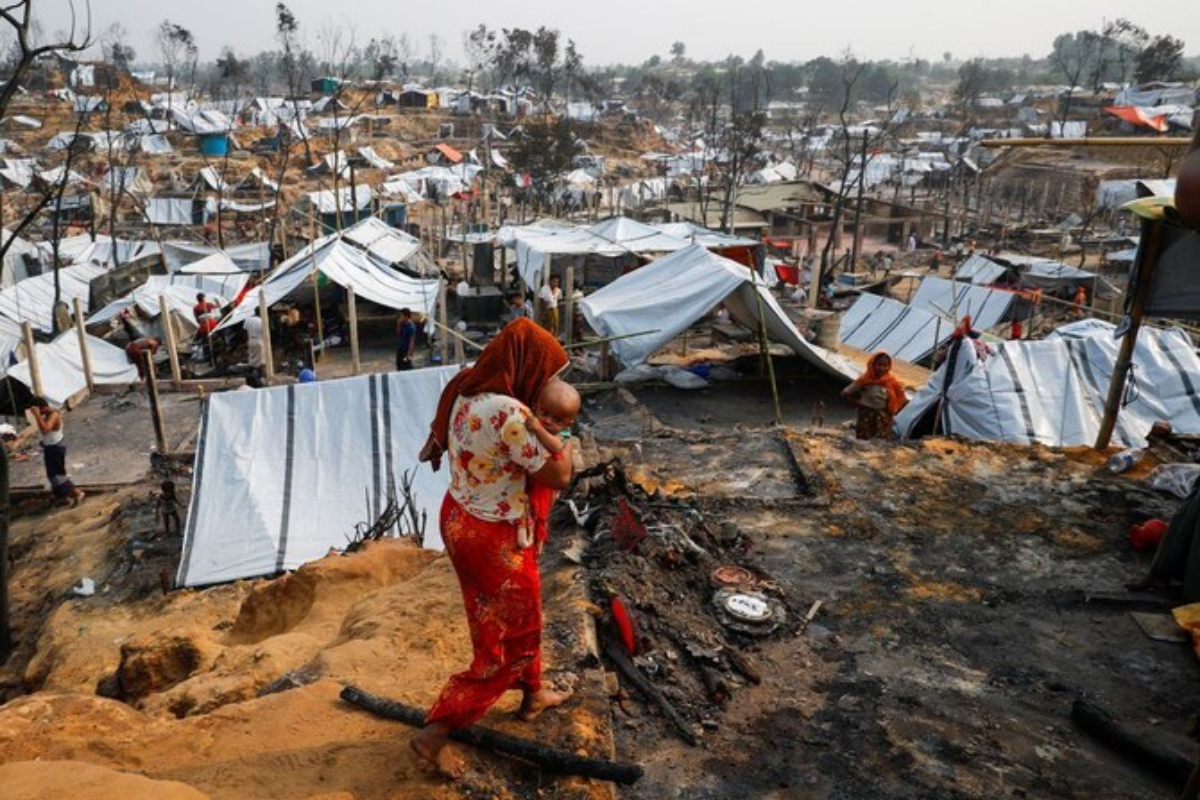- The decision follows a 33 percent reduction in food assistance to the Rohingya in 2023.
- The reduction was imposed due to insufficient funding.
- The WFP announced critical food assistance of $10 per person per month.
After months of significant aid cuts that resulted in an upsurge of malnourishment in the refugee camps, the UN’s World Food Programme (WFP) will enhance food rations for all Rohingya in Cox’s Bazar starting Monday. Earlier this year, the WFP had reduced food assistance to the Rohingya by 33 percent, providing only $8 per person per month, citing insufficient funding. This decision was made despite the camps in Cox’s Bazar already grappling with widespread malnutrition.
“The year 2023 was a tumultuous one for the Rohingya in Bangladesh, who lived through multiple fire outbreaks, cyclones, and, for the first time, ration cuts. The rapid deterioration of the food and nutrition situation in the camps is extremely worrying,” said Dom Scalpelli, WFP country director in Bangladesh. ‘
The World Food Programme 2023:
In 2023, the World Food Programme (WFP) faced two reductions in its food assistance for Rohingya refugees in Cox’s Bazar. Initially, in March, the value was lowered from $12 to $10, followed by a further cut to $8 in June. Despite malnutrition being a prevailing issue in Cox’s Bazar, these cuts were implemented due to insufficient funding.
On a positive note, the UN agency announced on Sunday that starting January 1, 2024, it will reinstate critical food assistance to $10 per person per month. However, achieving the full aid amount requires bridging a funding gap of $61 million, as per WFP’s statement.
Even before the reduction in rations, malnutrition was a significant challenge in Cox’s Bazar, with approximately 40 percent of children under 5 facing chronic malnutrition, and 12 percent experiencing acute malnourishment.
Dr. Abu Toha Bhuyan, health coordinator:
“We have noticed a sharp increase in cases of severe acute malnutrition and moderate acute malnutrition among the Rohingya,” Dr. Abu Toha Bhuyan, health coordinator with Bangladesh’s Refugee Relief and Repatriation Commission, told the news media.
“The $8 amount per month is very low for one person’s food requirements. As a result, the nutritional situation became very imbalanced. The children and the elderly are especially affected by malnutrition.”
The decline in food assistance is also affecting the immunity level of the Rohingya population, Bhuyan said.
“If people have good immunity, they get less infected with different infectious diseases. Here, we experienced a rise in infectious diseases among the Rohingyas since their immunity was compromised due to less amount of food intake … Malnutrition has also severely impacted the growth of children.”
The challenging situation is an everyday reality for Monowara Begum, who has three children.
“It’s very tough to manage the food for my … family with this little amount … With less amount of food, my children became very skinny and are suffering from different diseases, like flu, coughs, diarrhea, all through the year,” the 41-year-old told Arab News.
“Everything happened because of malnutrition and less immunity. Their growth is also affected, even though they are at a growing age,” she said.
“As a mother, it’s unbearable for me to see my children going hungry most days. I feel very upset with this situation.”
[embedpost slug=”north-korea-announces-plans-to-launch-three-spy-satellites-in-2024/”]




















